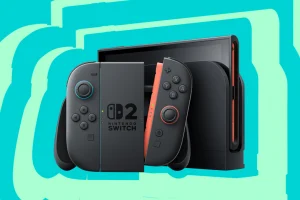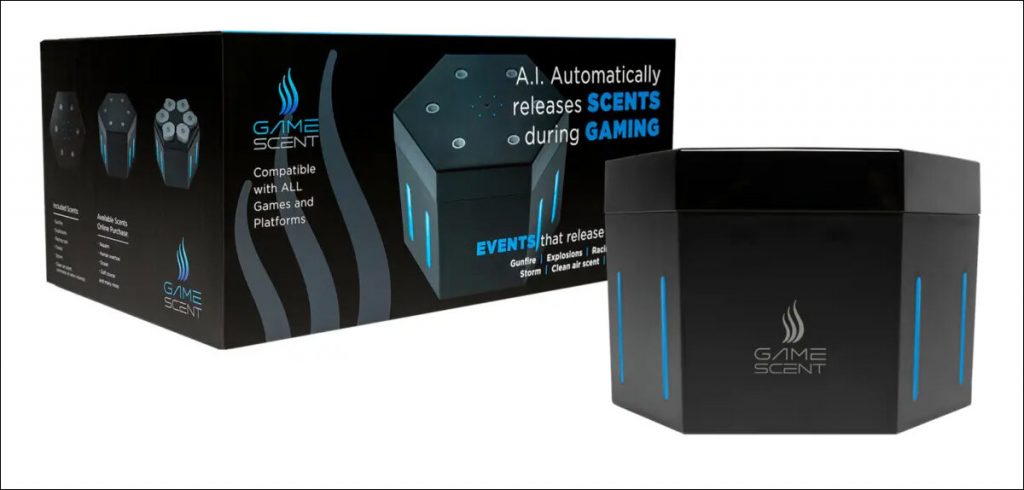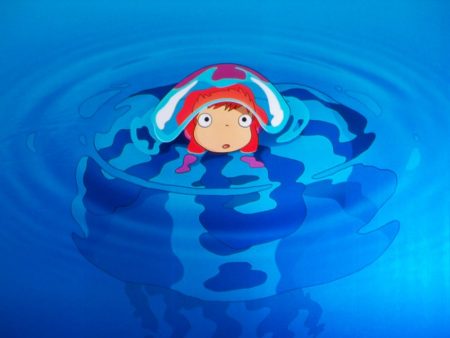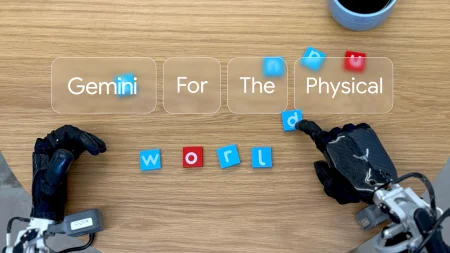Ever wish you could smell what’s cooking on your screen? Smells imprint in our long-term memory like nothing else and while these AI devices currently add smells to video games, they could be used for a variety of applications in the future.
Have you ever been walking or driving through some random location and you suddenly smell something that immediately transports you back in time with an overwhelming feeling of nostalgia? That’s the power of the sense of smell, it can trigger deep emotional responses and is often used to help people remember emotional memories. This is probably because the same part of our brain that’s used for learning, memory, and emotions, is also used to process smells. A while ago we did a post on 3D screens that incorporate the sense of touch into their user experience, what about the sense of smell? While it was more than a decade ago that Google played an April Fool’s joke on everyone with the Google Nose BETA announcement, AI is making real headlines by incorporating smells into the virtual world.
GameScent
Fancy the smell of gunpowder wafting through a forest while you play Halo or Call of Duty? That’s exactly what GameScent aims to accomplish with its AI powered scent device that releases certain scents while you play your game. The device is called GameScent, as is the company that produces it, and it works by using AI to process audio cues in real-time which are then used to trigger different smells. The device itself is about the size of a Wi-Fi router and it plugs into everything from PCs to gaming consoles to VR Headsets, as long as they have an HDMI port. There’s an interesting video on YouTube of a group of people using the GameScent as a standalone device and trying to guess the smells with mixed results.
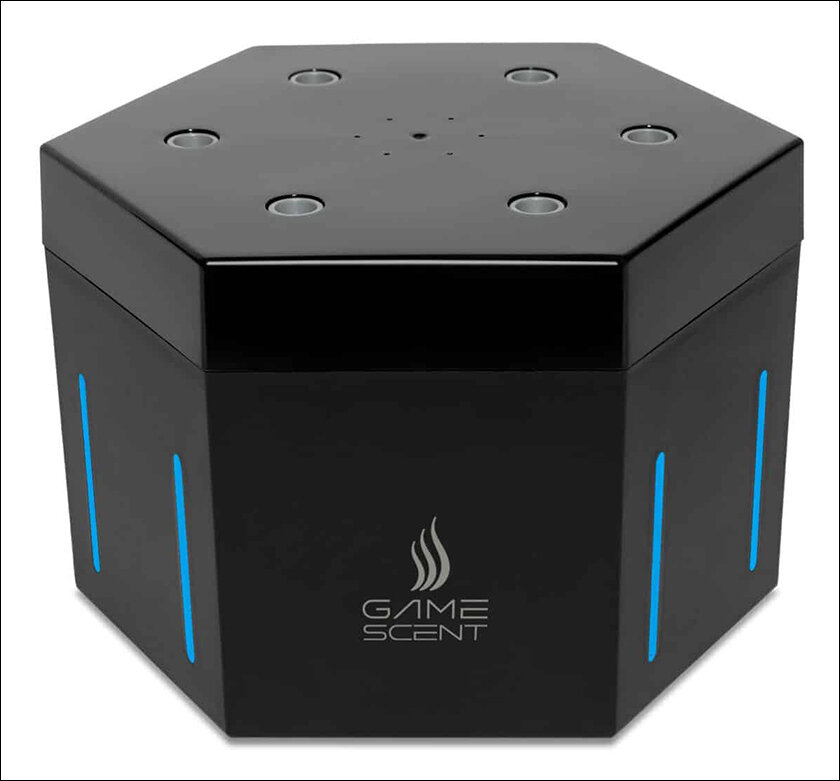
It’s probably different when the smells are enhanced with visuals from the game that you’re supposed to be playing while you use the device. That being said, there are six different scents that are activated while you’re gaming: gunfire, forest, ocean, explosion, racing car, and storm. There’s also a “clean air” function that fires at intervals and ensures the different scents don’t mix. It also comes handy when you want to “clear the air” so the room doesn’t smell like gunpowder and racing cars after a long play session. Priced at about $150 on Amazon, and with swappable cartridges and upcoming scents including Sports Arena and Blood, it sounds like a fun buy if you don’t mind your video games becoming a part of your long term memory.
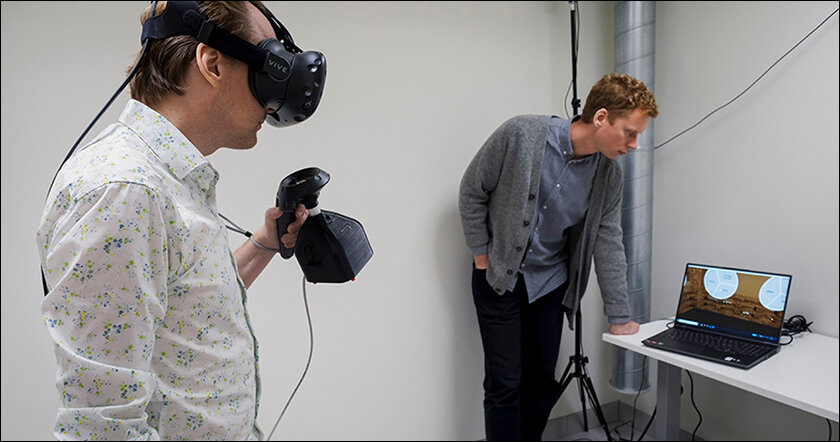
Nosewise Wine Game
That’s right, smells imprint in our long-term memory like nothing else, hence the nostalgia when we smell fresh cut grass or walk past a bakery or perfume store. Now while smelling your surroundings in a video game sounds interesting for sure, this next device is specifically for a game that’s about using your sense of smell. The game is called the Nosewise Wine Game, and no, you don’t get to drink any wine (unless you want to). When you put your VR Headset on, you’re instantly transported to a wine cellar where there are different glasses of wine that you have to identify by smell As you progress in the game the wines get more complex and the task of identifying them more challenging.
The device is hand-held and is supposed to substitute for the virtual wine glass that you’re holding in the game. When you hold it up to your nose it releases its scent which is a computerized concoction of four different scents put together in different variations to mimic the smell of different wines. The device is made up of a tube with 4 valves for the 4 different base notes (smells), and a fan that delivers the scent. Developed by a team of researchers from the University of Stockholm and Malmö, the Nosewise Wine Game is currently Open Sourced with software, blueprints, and instructions for the machine all available online. Additionally, the developers believe their machine can help people who have lost their sense of smell.
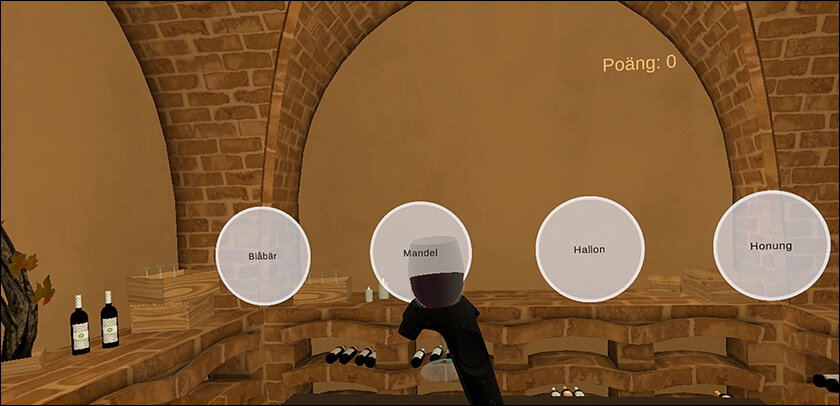
Smell training applications
Smell training is highly recommended by doctors for patients who have lost their sense of smell (through an injury or disease like COVID). The process, however, can be quite boring unless you have a fun wine smelling game, of course. If these AI-powered smelling devices can indeed be incorporated into other applications like training people to be actual wine tasters, or perfumers, it won’t be the first time that gaming has made a major contribution to AI and to the world. Just look at the GPUs that run large language models today, and ask yourself where they come from.
Today we have the hardware to support ChatGPT because someone somewhere wanted a video game to perform better and invented a GPU. You never know, maybe tomorrow you’ll be able to smell that cooking show you love to watch on TV because of GameScent or the Nosewise Wine Game.
In case you missed:
- Netflix replaces its game developers with AI
- Omnidirectional VR treadmills, go anywhere without going anywhere!
- NVIDIA just dropped “ACE” at CES 2025: Truly intelligent NPCs coming soon!
- So AI can get bored, “suffer,” and even commit suicide?
- Samsung’s new Android XR Headset all set to crush Apple’s Vision Pro
- Scientists have stored the human genome on a Kryptonian crystal
- AI-powered smart devices for the hearing, vision, and speech-impaired
- Lab-Grown Brain Thinks It’s a Butterfly: Proof We’re in a Simulation?
- Neuralink Blindsight and Gennaris Bionic eye, the future of ophthalmology?
- Will Pi Coin Be the Next Bitcoin? A quick Reality Check!
